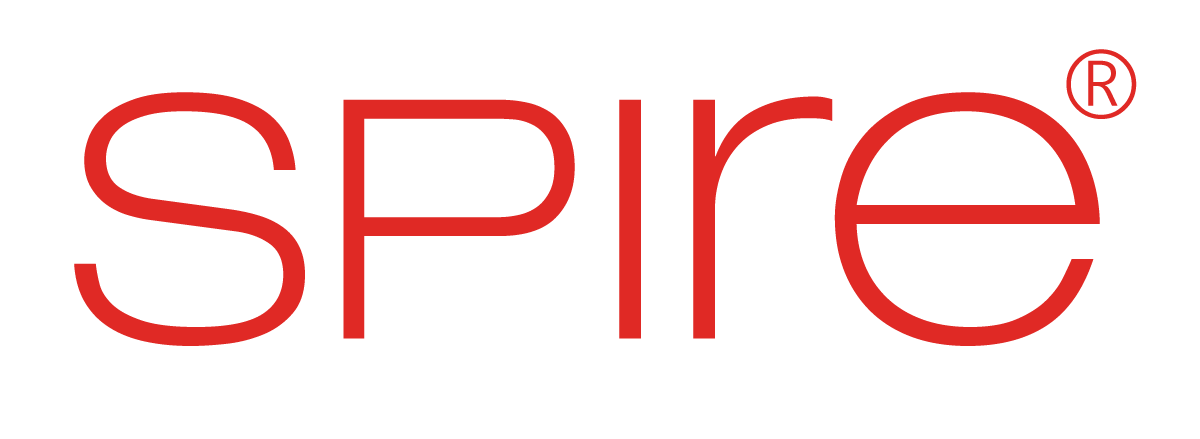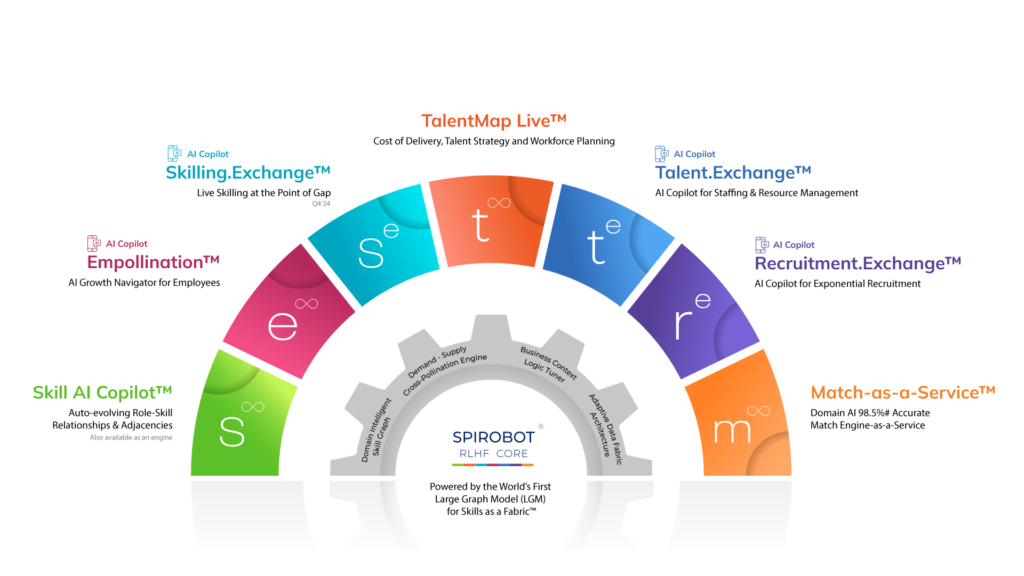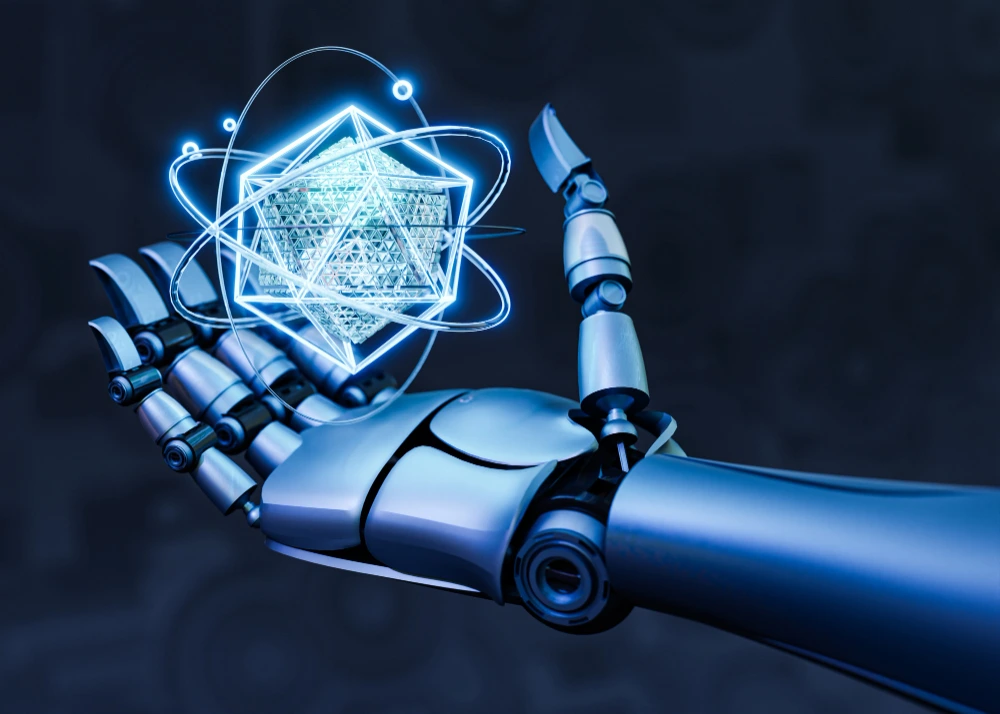For decades, performance management has relied on subjective evaluations and anecdotal evidence. This traditional approach often leads to inconsistencies, biases, and a need for actionable insights for employees and managers. However, the rise of Artificial Intelligence (AI) in talent management is ushering in a new era that integrates skills with data-driven insights for a more holistic and practical approach.
AI presents a groundbreaking approach to performance management. It sifts through vast data to offer a more comprehensive view of employee skills and performance. This blog delves into AI’s potential to revolutionize performance reviews, pinpoint skill gaps, and pave the way for a data-driven future of employee development.
In this blog, we will explore the role of AI in performance management and how it can impact and elevate the process and deliver tangible results in talent management for organizations.
AI for Performance Reviews: Transforming the Traditional System
Performance reviews are crucial tools for employee development, offering a chance to assess progress, identify improvement areas, and set future goals. However, the traditional review process can be cumbersome, time-consuming, and often yield limited value. AI for performance reviews offers a powerful alternative, transforming the system into a more streamlined, data-driven, and employee-centric experience.
Here’s how AI in performance management can revolutionize performance reviews:
Automated Data Collection
AI for performance reviews can automate data collection from various sources, eliminating the need for manual data entry and saving managers valuable time. Imagine if performance data were automatically pulled from project management tools, customer feedback surveys, and internal communication platforms. This would reduce the administrative burden on managers and ensure data accuracy and consistency.
Personalized Feedback Generation
AI can analyze this vast amount of data to generate customized feedback reports for each employee. These reports highlight strengths, weaknesses, and areas for improvement, providing employees with a clear roadmap for development. Gone are the days of generic feedback that fails to address individual needs. AI for performance reviews allows for targeted feedback specific to the employee’s role, skillset, and recent performance.
Goal Alignment
AI can also play a crucial role in setting goals. AI for performance reviews can help managers and employees set SMART goals (Specific, measurable, achievable, relevant, and time-bound) aligned with individual skill sets and overall organizational objectives. By analyzing employee skill profiles and past performance data, AI in performance management can suggest realistic and achievable goals that stretch employees without setting them up for failure. This collaborative goal-setting process fosters a sense of ownership and accountability, leading to higher engagement and motivation.
Real-Time Feedback and Coaching
AI for performance reviews continues beyond the annual review cycle. AI in performance management can facilitate a culture of continuous feedback with real-time insights. AI helps establish a system that automatically flags potential performance issues or identifies areas where an employee might benefit from additional support. Managers can then intervene with targeted coaching or training before problems escalate. This improves employee performance and fosters a more open and collaborative work environment.
Reduced Bias
AI for performance reviews can also help mitigate bias in the review process. By relying on objective data and automated analysis, AI in performance management removes the element of human subjectivity that can often creep into traditional reviews. This ensures a fairer and more equitable evaluation process for all employees.
The benefits of AI for performance reviews extend beyond efficiency and accuracy. AI in performance management creates a more meaningful and productive experience for employees and managers. Employees receive targeted feedback and a clear path for development, while managers are empowered to provide more effective coaching and support. This ultimately leads to a more engaged, productive, and high-performing workforce.
AI in Performance Management: Unveiling the Bigger Picture
For decades, performance management has relied on subjective evaluations and anecdotal evidence. While these methods might offer some insights, they often need more depth and objectivity to truly understand and improve employee performance. This is where AI in performance management comes in.
AI offers a revolutionary approach by analyzing vast amounts of data to provide a more holistic picture of employee skills and performance. This data-driven approach unveils the bigger picture, revealing what employees are doing and how their skills contribute to overall success.
Here’s how AI in performance management integrates skills with performance management:
Data Aggregation
AI can ingest data from many sources, creating a comprehensive data profile for each employee. This data might include performance reviews, project management tools, customer feedback surveys, internal communication platforms, and learning management systems. By analyzing this rich data, AI in performance management can identify patterns and connections invisible to the human eye.
AI can ingest data from many sources, creating a comprehensive data profile for each employee.
Skills-Based Analysis
One of AI’s critical strengths in performance management is its ability to analyze employee skill profiles alongside performance data. This allows for a skills-based analysis, revealing how specific skills contribute to (or hinder) success in different roles. For example, AI might identify a strong correlation between solid communication skills and exceeding sales targets in a customer service role. AI for performance reviews can then use this insight to identify employees who might benefit from additional communication training, ultimately boosting overall team performance.
One of AI’s critical strengths in performance management is its ability to analyze employee skill profiles alongside performance data.
This allows for a skills-based analysis, revealing how specific skills contribute to (or hinder) success.
Predictive Insights
AI in performance management goes beyond simply analyzing past performance. It can also leverage its data analysis capabilities to generate predictive insights. For instance, AI might identify employees at risk of burnout or possessing the potential for leadership roles. These insights allow managers to take proactive steps, such as offering workload adjustments or providing leadership development opportunities.
Real-Time Feedback
Traditional performance reviews often happen once a year, limiting their effectiveness. AI in performance management provides real-time insights into employee performance. This allows managers to identify areas for improvement early on and intervene with targeted coaching or training before performance issues escalate. Additionally, AI for performance reviews can empower employees with real-time feedback, allowing them to adjust their approach and continuously improve their performance throughout the year.
AI facilitates a culture of continuous improvement, empowers employees to take ownership of their development, and allows managers to provide more effective coaching and support.
The benefits of AI in performance management extend far beyond simply providing a more objective picture of employee performance. AI facilitates a culture of continuous improvement, empowers employees to take ownership of their development, and allows managers to provide more effective coaching and support. This ultimately leads to a more engaged, productive, and high-performing workforce.
Spire.AI: Empowering Organizations with Skills-Based Talent Management
Spire.AI is a leading copilot for talent for AI-powered talent management solutions. Our platform leverages the power of AI to integrate skills with performance management, empowering organizations to build a future-proof workforce.
Here’s how Spire.AI helps organizations:
- Automatic AI-generated Employee Skill Profiles: Spire.AI utilizes AI to analyze data from various sources and build comprehensive employee skill profiles. This eliminates manual data entry and clearly shows an employee’s skill set.
- Career Path Simulation and Reskilling Recommendations: Spire.AI recommends tailored upskilling and reskilling opportunities based on employee skill profiles and aspirations. This empowers employees to take charge of their development and pursue fulfilling career paths within the organization.
- Talent Marketplace: Spire.AI facilitates a dynamic talent marketplace that connects employees with internal opportunities that align with their skills and aspirations. This increases internal mobility and fosters a culture of growth within the organization.
As a result of implementing Spire.AI, organizations have witnessed a significant increase in internal mobility, with some experiencing a jump from 21% to 56%. This demonstrates the power of AI in creating a more agile and engaged workforce.
Final Thoughts
While well-intentioned, the traditional performance management system must provide a comprehensive picture of employee skills and performance. AI in performance management represents a significant shift towards a more data-driven and skills-based approach. By leveraging the power of AI, organizations can unlock a wealth of insights into their workforce, empowering employees to thrive and driving overall organizational success.
As we’ve seen, AI for performance reviews can transform the review process, making it more efficient, objective, and employee-centric. Additionally, AI in performance management facilitates a culture of continuous learning and development by providing real-time feedback and identifying skill gaps.
The future of work belongs to organizations that embrace AI to create a more dynamic and data-driven talent management strategy. By integrating AI into performance management, organizations can unlock the full potential of their workforce, fostering a culture of engagement, growth, and high performance.






